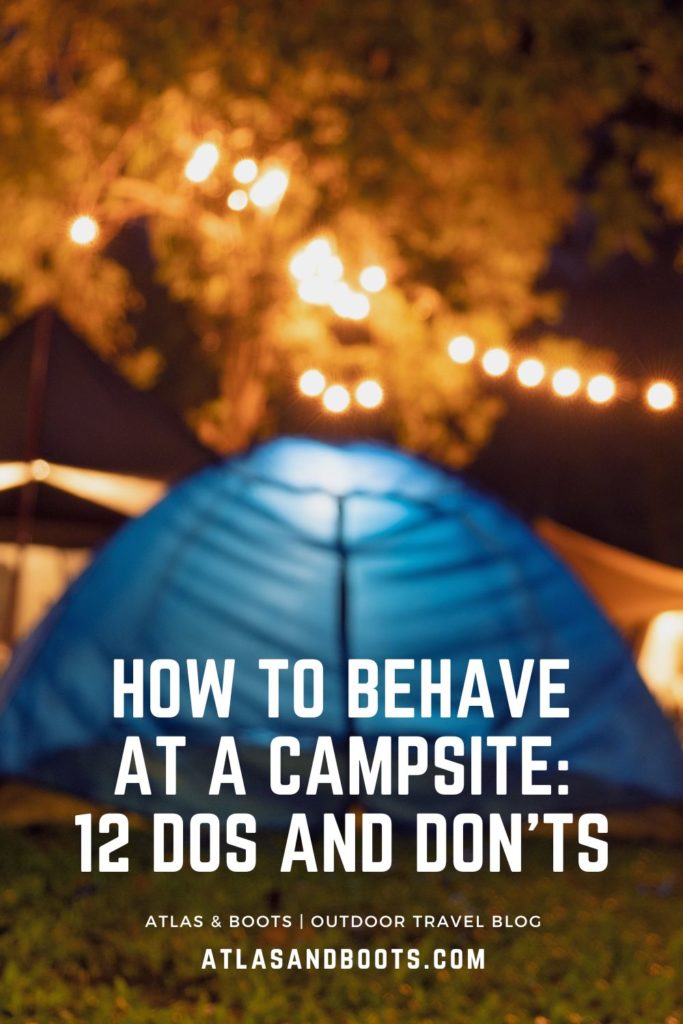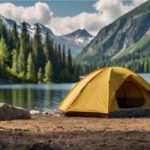From playing music out loud to leaving your pet unattended, here’s our expert guide on how to behave at a campsite
Some of my most unforgettable moments have taken place under canvas. From unzipping the porch to reveal the needlepoint summit of Laila Peak on the K2 base camp trek to listening to the snap, crackle and pop of Greenland’s Russell Glacier under a midnight sun, these were experiences I could not have had in a hotel.
Unfortunately, there have also been unforgettable moments for all the wrong reasons. There was that time I was hiking a section of Cornwall’s South West Coast Path when, after finding a secluded pitch on the top of a cliff and nipping off to use the conveniences, I returned to find that another camper had inexplicably pitched his tent just inches from mine despite having miles of coastline to choose from.
Another time, during the Highlander Svaneti trail in Georgia, a group of trekkers chose to play Russian metalcore via their Bluetooth speakers throughout the evening much to the chagrin of other campers. Eventually, they were politely asked to turn it off and did so begrudgingly.
Even recently, on Denali – the highest peak in North America – a group of climbers from the Navy Seals turned their area of Camp 3 into an outdoor gym complete with music and hoots of encouragement. No one quite had the confidence to ask them to quieten down, but I think we were all quietly vindicated when the Seal team failed to summit. Perhaps, like us, they should have used our rest day at 4,330m (14,000ft) to rest instead of doing push-ups and sit-ups.
How to behave at a campsite
Campsite etiquette shouldn’t need to be explained, but it never ceases to amaze me just how thoughtless other campers can be. With that in mind, please consider the following tips on how to behave at a campsite.
1. Do respect people’s privacy
Campsites often have demarcated areas for campers, particularly ones which accept caravan and camper vans, but many will simply open fields or areas where campers are expected to use their initiative. You may well want to be close to the fire pit, wash-up area or communal washrooms, but please think of others when you pitch your tent.
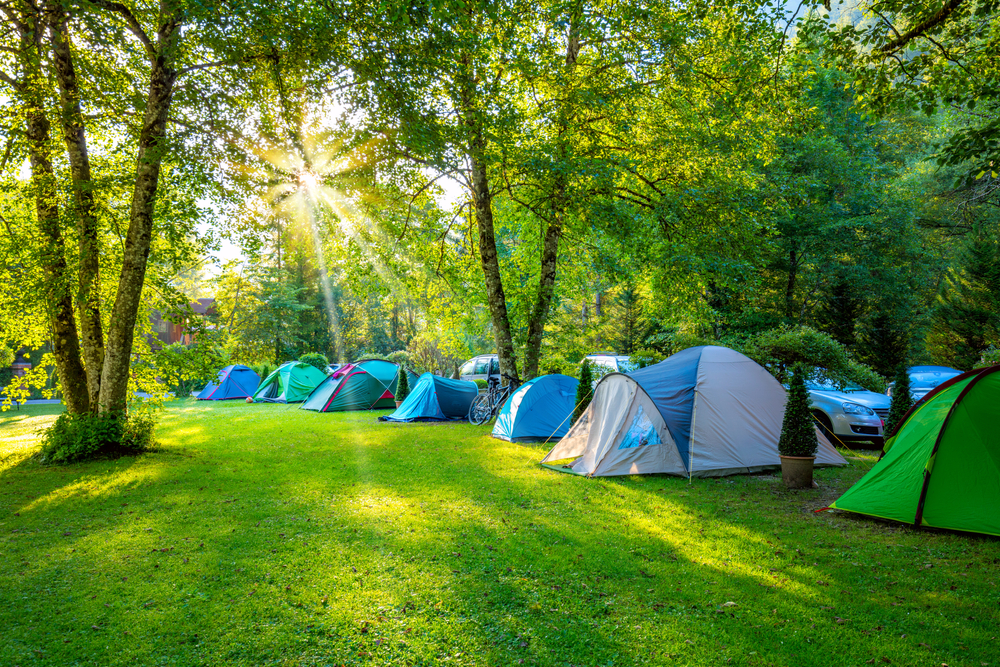
Obviously, give your neighbours as much space as possible and don’t pitch right next door to others, but also consider the route people take when walking around the site. People do not want to be stepping over your guy ropes, stabbing their toes on your tent pegs or passing close to your front porch when they’re on their way to the communal areas.
2. Don’t leave food outside overnight
Of course, we all love seeing wildlife, but no one wants bears, mountain lions or coyotes sniffing around their campsite. Leaving food outside encourages wildlife to enter the camp which can be unsafe for humans as well as other animals, dramatically altering the behaviour, physiology and demography of wildlife.
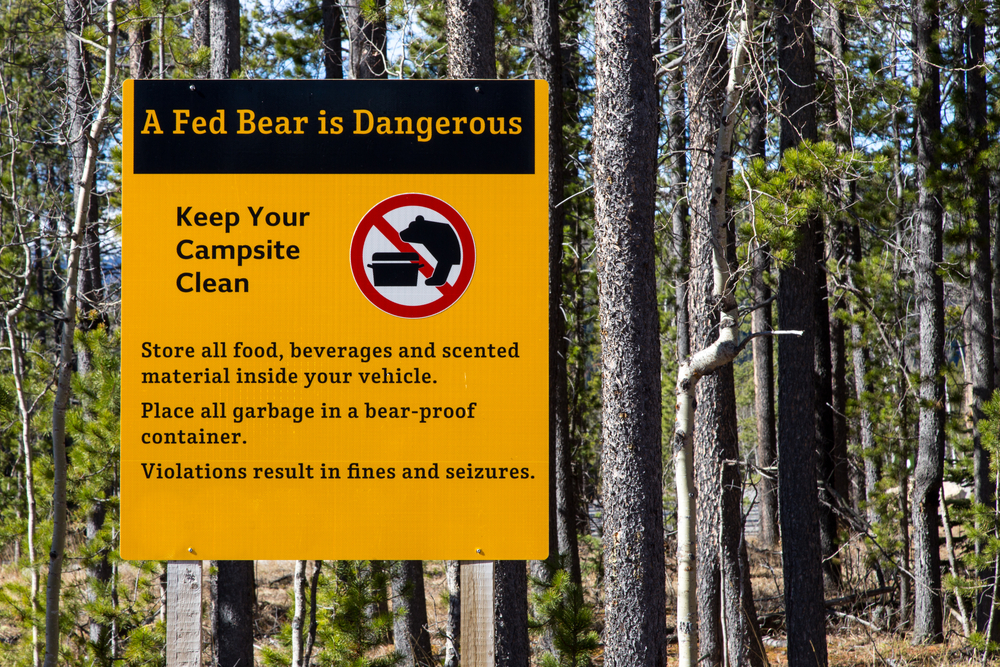
Bears, for example, are used to eating raw fish and mushy berries and not sugary cereals and candy. Overindulging on human food can cause them to have shorter hibernations and lifespans. If you’re in bear country, hoist a “bear bag” into the trees, suspending it at least 3m (10ft) off the ground (ideally more) and 1.3m (4ft) from the trunk of the tree.
3. Do keep your site and shared facilities tidy
People head to the outdoors to enjoy nature and get away from the clutter of urban life. No one wants to unzip their tent in the morning to find a campsite littered with last night’s detritus or your children’s toys. Everyone will enjoy a campground that’s kept as clean and tidy as possible.

Likewise, you should always leave communal spaces in a clean and tidy state after using them. This applies to washing-up areas, laundry facilities or the shower block. It may well be easier to leave your dishes to dry on the draining board or your laundry hanging up while you go out for the day, but it’s not fair to others who may want to use these areas.
4. Don’t shine lights everywhere
Of course, you’ll want to bring a headlamp or torch for those late-night trips to the toilet block, but try to keep your light shining down when on the campsite. Tent canvas is great for keeping the rain out, but not so good when it comes to stopping the 2,000-lumen-glare of an LED headtorch.
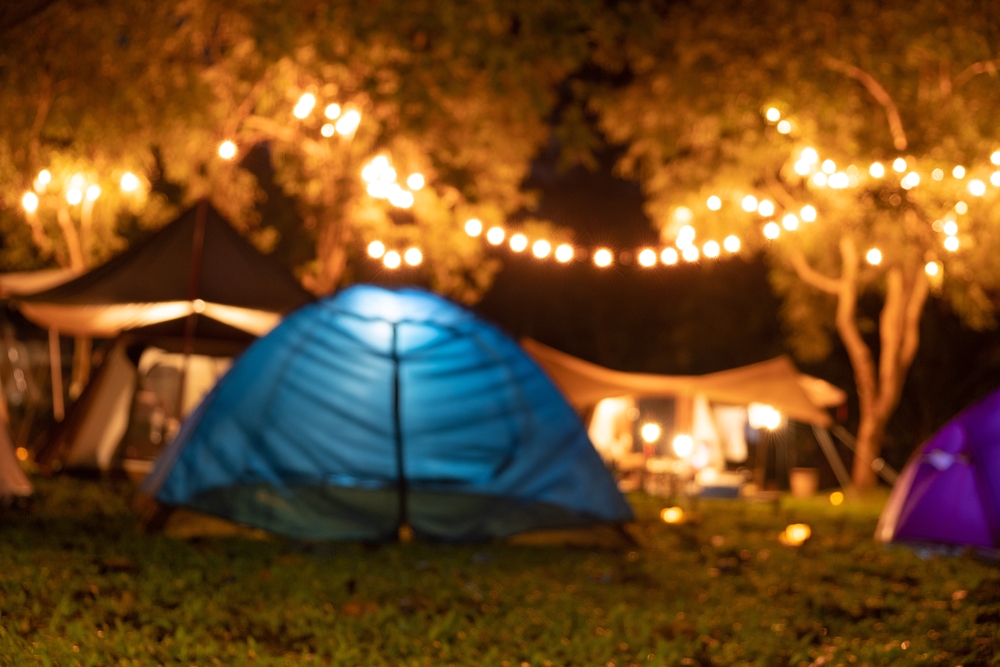
The same goes for camping lanterns and excessive fairy lights. While no one expects you to go to bed as soon as the sun drops below the horizon, at the same time, nobody wants their campsite flooded with another’s camper’s light. Consider opting for a softer ‘AlpenGlow’ style lantern instead.
Finally, remember that if you’re in your tent with a light on, other campers will get a pretty good view of what you’re up to…
5. Do keep your pets under control
First and foremost, if you have a pet, you will need to check that your furry friend will be welcome. Some campsites operate pet-friendly areas separate from the other areas of the site and may even have designated exercise areas for pets. Others, however, may have blanket bans on pets, particularly if you’re in a conservation area.
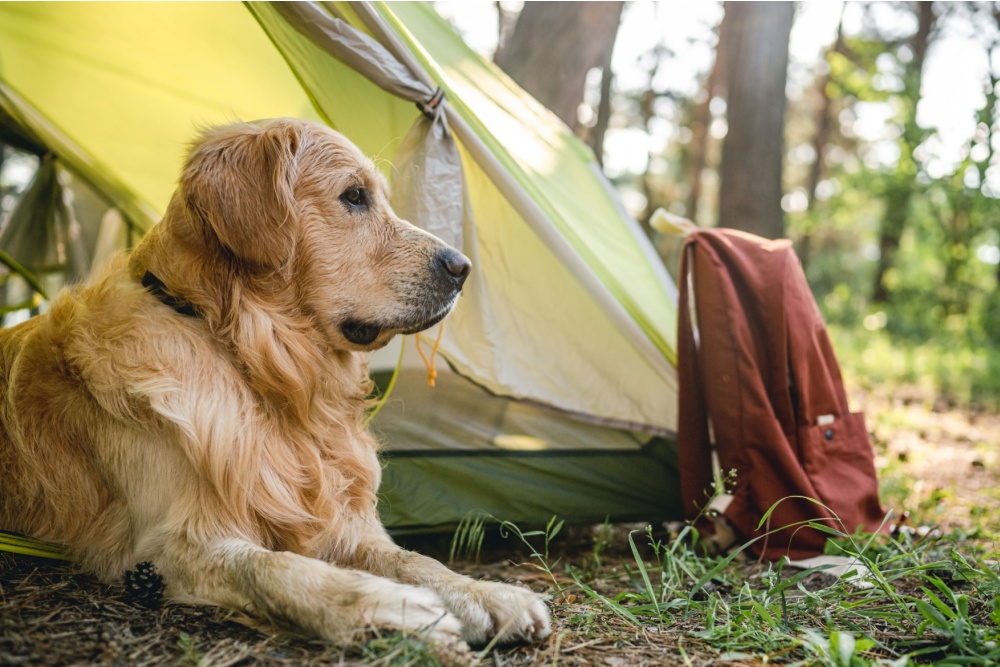
Wherever you end up, remember that not every camper will have the same enthusiasm for your pet. People may not like your dog – or any pet – running into their areas, especially if they have young children or are cooking outside. Barking can be annoying and disruptive to other campers so never leave your dog unattended. Also, make sure you clean up after your pet. Just because you’re in the outdoors, it doesn’t mean the same rules don’t apply as when you’re walking your pets at home.
6. Don’t let your kids run around
Not only is a campground a potentially unsafe place for youngsters to be running around in (tent pegs, barbecues and camping knives generally don’t mix well with kids) but just as with pets, not everyone will have the same enthusiasm for your children. Noisy children can be just as annoying as barking dogs – and make just as much mess!
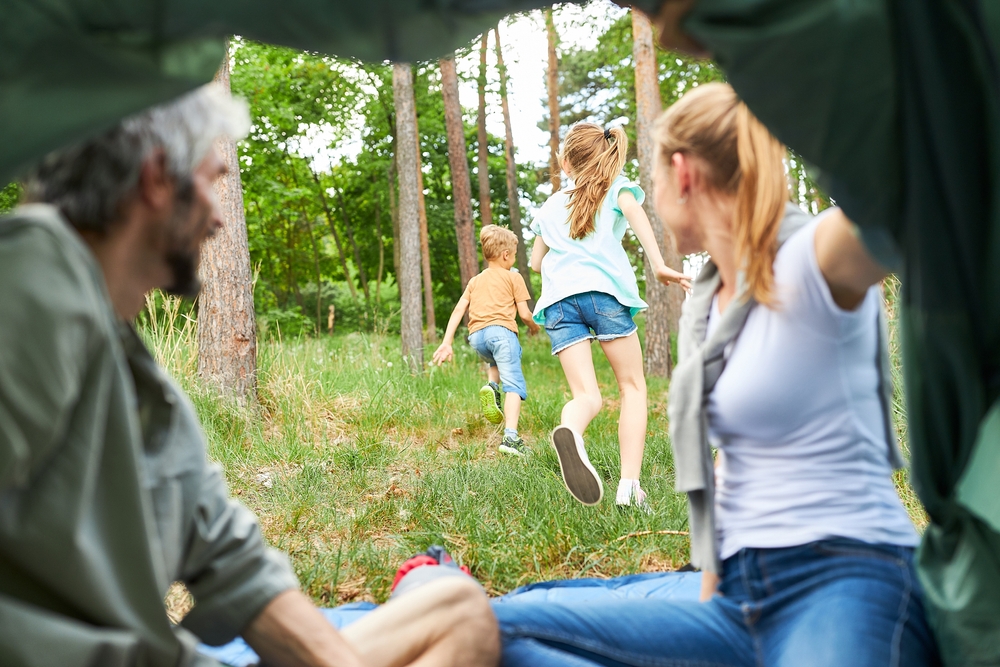
7. Don’t interfere with wildlife
One of the great joys of camping is getting closer to nature and, if you’re lucky, observing local wildlife in its natural habitat. You should, of course, take any opportunity to enjoy wildlife but crucially, always do so from a distance.
Getting too close can be dangerous to you – the threat of an attack or the spread of disease are both possibilities – but more importantly, it can put the animal at risk of harm. Consider bringing a pair of binoculars or a camera with a long lens so you can view wildlife without disturbing it.
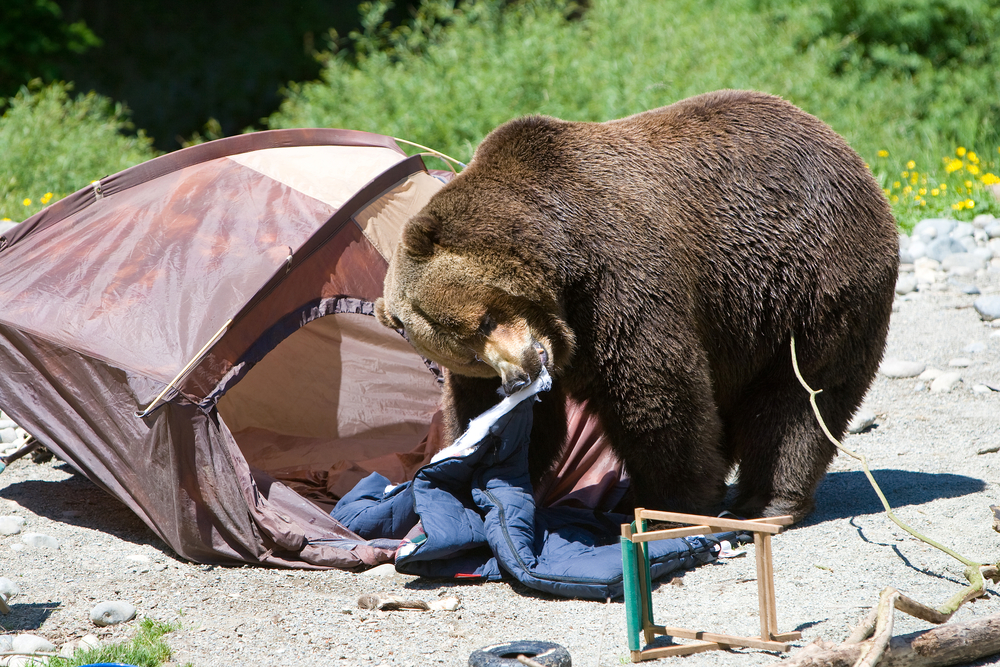
Never feed wildlife and ensure all food scraps, wrappers and trash are properly disposed of or stored to avoid attracting animals to your campsite. If you’re camping in bear country, be bear aware and use the provided bear box at your site or bring bear canisters for backcountry trips.
As above, keep your pets under control so they cannot interfere with wildlife.
8. Don’t make lots of noise
The quickest way to annoy your co-campers and make yourself unpopular is by making too much noise. Sound carries much further on a campsite and tents don’t insulate against noise at all. A general rule of thumb is that if you can hear it, everyone else can too.
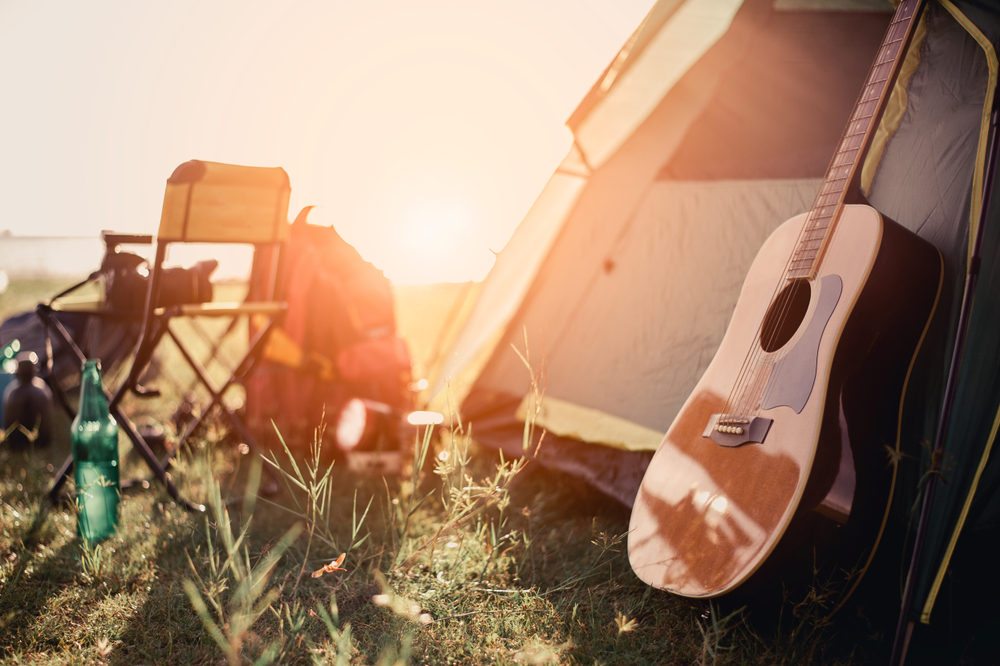
Ideally, leave the Bluetooth speaker at home but if you really can’t live without your background music, keep it as quiet as possible and turn it off well before bedtime. There’s certainly no excuse for singing along with your favourite tune. And while we’re on the subject, if you’re tempted to bring a guitar (or any musical instrument) to a campsite… don’t.
9. Do practise fire safety
According to the US Forest Service, humans cause nine out of 10 wildfires. These are ignited by unattended campfires, fireworks, sparks from equipment or vehicles, burning leaves or debris and even cigarettes tossed from cars.
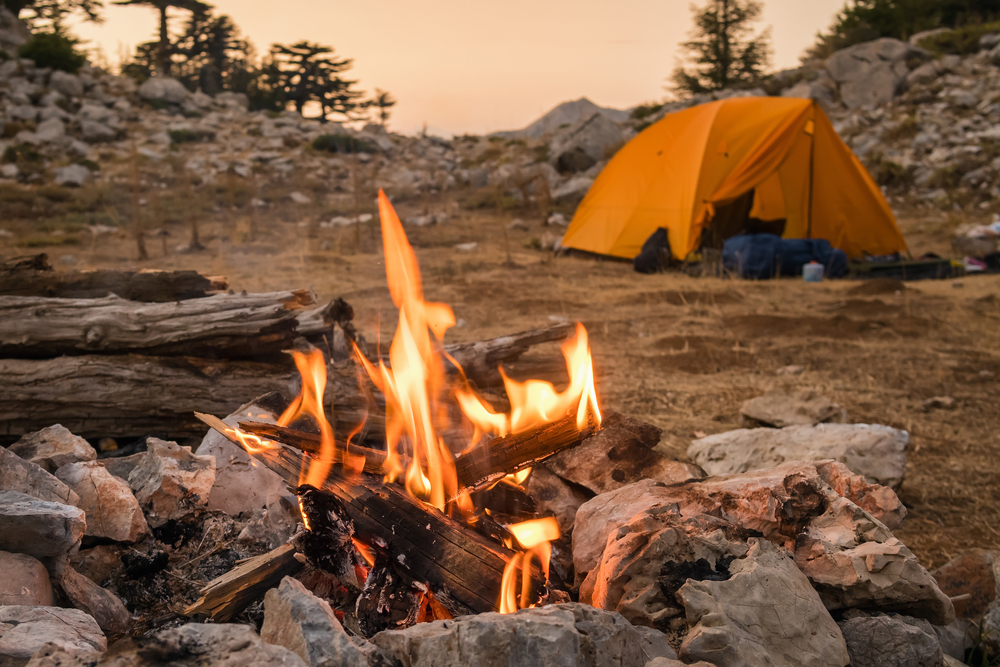
Clearly, preventing wildfires is the best way to escape them. Always follow these simple steps:
- Don’t build a campfire at a site with dry conditions. Check with park or campsite authorities to see if there is a burn ban.
- Use a designated fire ring or fire pit for your campfire.
- If there is no designated spot, look for a site away from tents, trees or scrub.
- Keep your campfire small and under control. Never leave it unattended.
- Allow the fire to burn completely to ash. Then, to fully extinguish it, pour plenty of water to drown the embers. Remember that the fire might be burning underground in the roots of trees or bushes. Stir the ashes and pour more water until all the hissing stops. Make sure everything is cold to the touch.
- If you use a portable stove, ensure the area is clear of grass and other debris that might catch fire.
- If you see smoke or fire, note the location and alert authorities as soon as possible.
10. Do check the campsite policies
Rules can vary. Some campsites will allow campfires while others won’t. Some will allow big groups while others don’t. Do your research beforehand, but also double-check on arrival as local conditions can often affect what you are and aren’t permitted to do on-site at different times of the year. Whether you’ve planned for it or not, still follow the rules – they are usually in place for good reason.
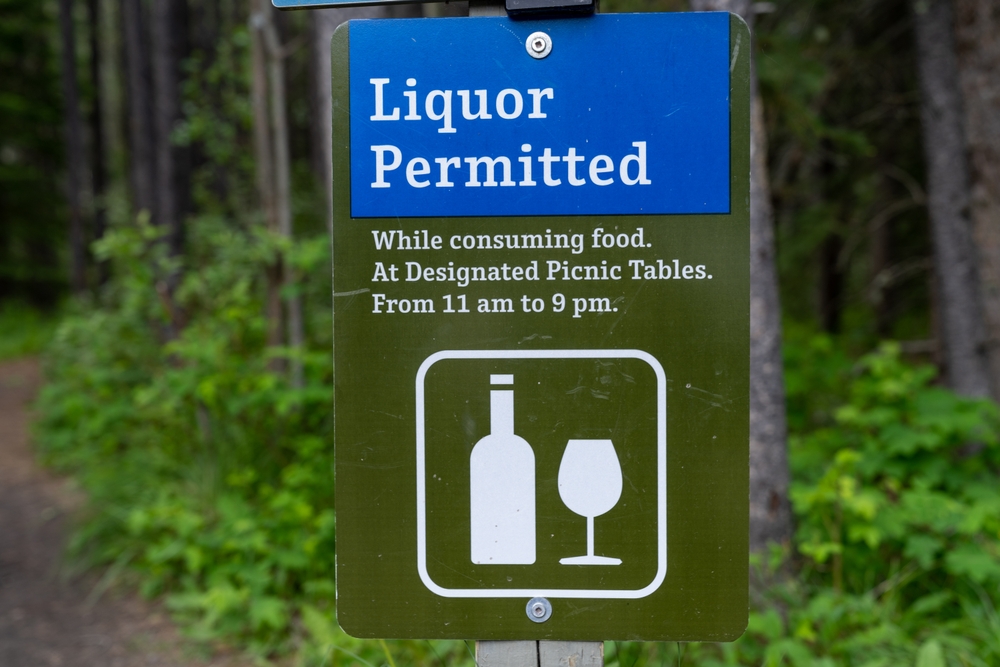
11. Don’t drink too much alcohol
Loud drunken groups on campsites are a pet hate of every other camper – although some might not be so hard on themselves when it’s their night to get carried away! Remember that it is much harder to regulate the volume of your voice and your music when you are drinking. Have fun, of course, just keep the drinking in check (probably a good rule of thumb for life in general).
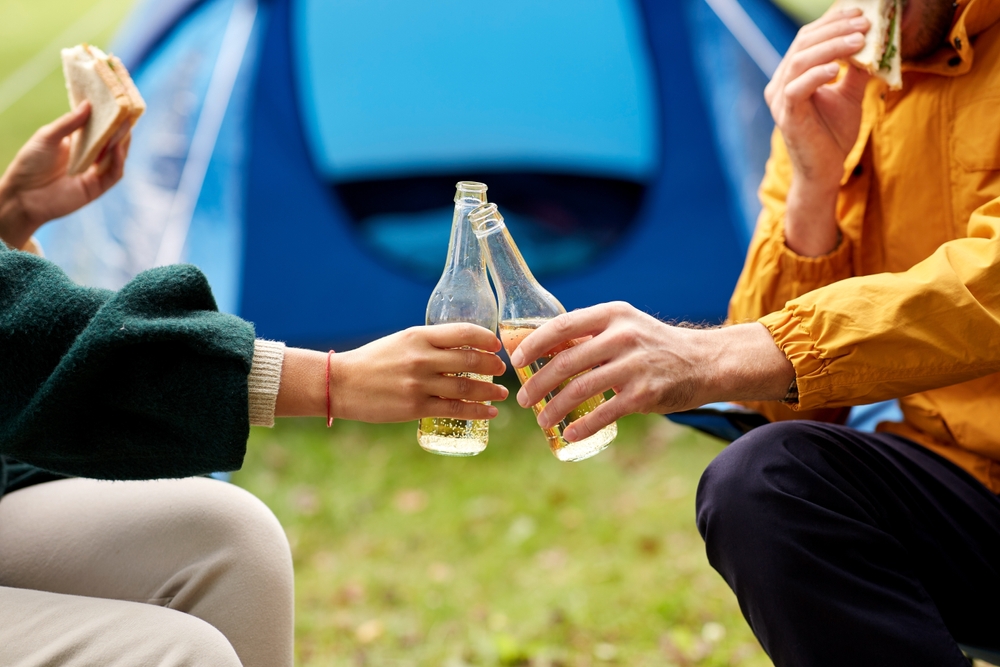
12. Do practise Leave No Trace
Finally, wherever you’re camping, always follow the principles of Leave No Trace, a simple framework of minimum impact practices for anyone visiting the outdoors.
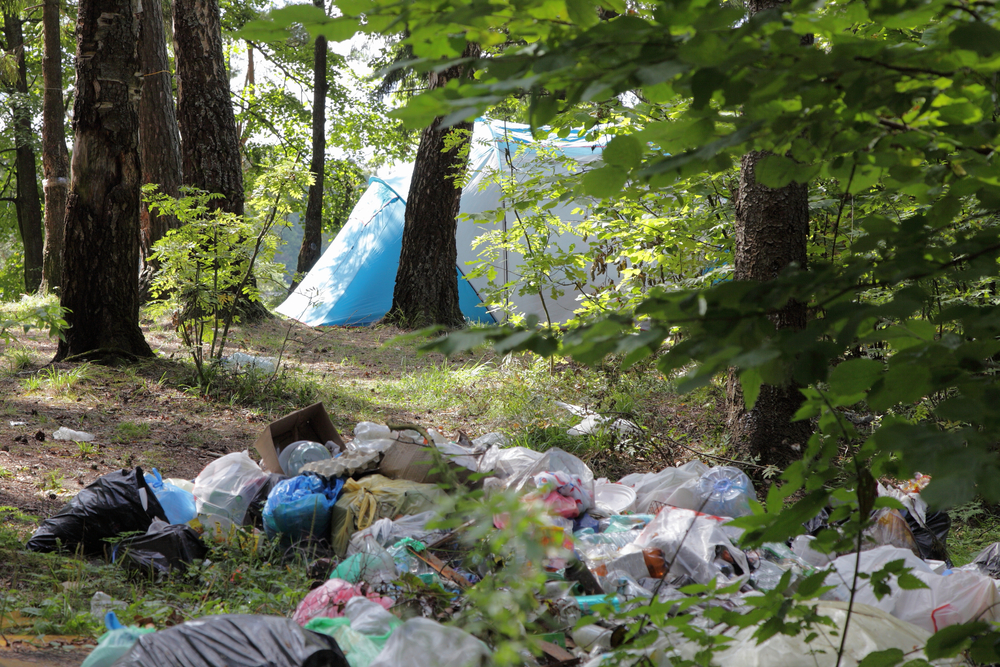
There are seven key principles to consider:
- Plan ahead and prepare
- Travel and camp on durable surfaces
- Dispose of waste properly
- Leave what you find
- Minimize campfire impacts
- Respect wildlife
- Be considerate of others
Whether camping at a campsite or in the wild, these should be your standard outdoor ethics to minimise your impact on the environment, respect other campers and leave things as you found them for future visitors.
Enjoyed this post? pin it for later…
